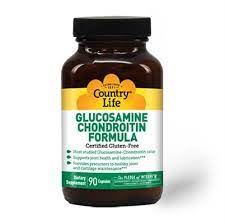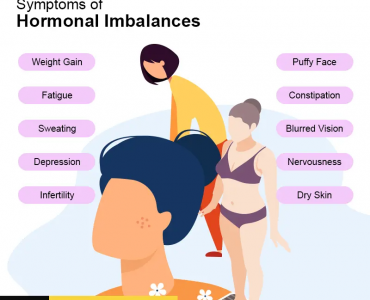Digestive enzymes are compounds made by the body to digest food ready for absorption. There are 3 main types of enzymes needed for the digestion of proteins, carbohydrates and fats. Raw foods such as fruits, vegetables and wholegrains contain the enzymes we need to digest them, but unfortunately cooking and processing destroys the enzyme content. Both pineapple and papaya contain high levels of digestive enzymes.
What it does
Some supplements offer a broad spectrum of enzymes, where as others offer a specific, single type of enzyme.
- Amylase: breaks down carbohydrates into smaller units known as monosaccharides. In the body amylase is found in saliva and in digestive secretions from the pancreas.
- Alpha Galactosidase: an enzyme with the ability to break down carbohydrates commonly found in beans, legumes, seeds and soy products which are generally poorly digested. These carbohydrates are often associated with bloating, flatulence and digestive discomfort.
- Protease:
facilitate the breakdown of proteins into amino acids. Proteases are found in the stomach as pepsin, and in the digestive secretions from the pancreas. In order for proteases to work efficiently proteins must first be acted on by hydrochloric acid in the stomach. - Lipase:
breaks down lipids, or fats, into fatty acids and glycerol. Lipases are reliant on the action of lecithin in bile which has the effect of emulsifying fats allowing more of the lipid to be acted on by the enzymes. - Lactase:
The enzyme necessary for digestion of the milk sugar lactose.
Digestive enzymes examples
- Amylase: Breaks down carbohydrates
- Lipase: Breaks down fats
- Protease: Breaks down proteins
- Lactase: Breaks down lactose, the sugar found in milk
- Sucrase: Breaks down sucrose, the sugar found in table sugar
- Maltase: Breaks down maltose, the sugar found in grains
They are essential substances that aid in the breakdown of food components like carbohydrates, proteins, and fats, allowing the body to absorb and utilize nutrients efficiently. They are found naturally in various foods.
Here are some examples of foods rich in digestive enzymes:
- Pineapple: Contains bromelain, an enzyme that helps break down proteins. It’s often used as a natural meat tenderizer.
- Papaya: Contains papain, which assists in breaking down proteins. It’s commonly used in marinades for meats.
- Kiwi: Contains actinidin, an enzyme similar to bromelain, which aids in protein digestion.
- Mango: Contains amylases, enzymes that help break down carbohydrates.
- Avocado: Contains lipase, an enzyme crucial for digesting fats.
- Kefir: A fermented dairy product rich in probiotics and enzymes that aid in lactose digestion.
- Sauerkraut: A fermented cabbage dish that contains enzymes to aid in digestion and improve gut health.
- Kimchi: A Korean fermented vegetable dish that is rich in digestive enzymes and probiotics.
- Miso: A traditional Japanese seasoning made from fermented soybeans, rice, or barley. It contains protease enzymes for protein digestion.
- Yogurt: Contains lactase, an enzyme that helps break down lactose in dairy products.
- Honey: Contains various enzymes, including diastase, which helps break down starches.
- Ginger: Contains zingibain, an enzyme that aids in protein digestion.
- Spirulina: A type of blue-green algae that contains a range of enzymes to support digestion.
- Raw Honeycomb: Contains enzymes like diastase and invertase that assist in breaking down carbohydrates.
Including these enzyme-rich foods in your diet can support the natural digestive processes of the body and may alleviate digestive discomfort in some individuals. Remember, individual responses to these foods may vary, so it’s important to listen to your body and consult a healthcare professional if you have specific digestive concerns.
Potential Uses
| Bloating & Abdominal cramping | Indigestion | Food allergy |
| Flatulence | IBS | Diarrhoea |
| Arthritis | Back ache |
If the body does not completely use a digestive enzyme supplement for digestive purposes, the remainder is absorbed into the system where it has an anti-inflammatory action.
Role of enzymes in digestion
Digestive enzymes are proteins that help to break down food into smaller molecules that the body can absorb. Different enzymes break down different types of food, including carbohydrates, proteins, and fats.
Enzymes are produced by the pancreas, salivary glands, and small intestine. They are released into the digestive system when food is eaten.
The digestive process begins in the mouth, where food is chewed and mixed with saliva. Saliva contains the enzyme amylase, which breaks down carbohydrates.
Next, food travels to the stomach, where it is mixed with gastric juices. Gastric juices contain the enzymes pepsin and lipase. Pepsin breaks down proteins, and lipase breaks down fats.
Food then travels to the small intestine, where it is mixed with bile and pancreatic juices. Bile is produced by the liver and helps to break down fats. Pancreatic juices contain a variety of enzymes, including amylase, lipase, and protease. Protease breaks down proteins.
Once food has been broken down into smaller molecules, it can be absorbed into the bloodstream and transported to the cells of the body.
Digestive enzymes benefits
Digestive enzymes offer a number of benefits, including:
- Improved digestion: can help to improve digestion by breaking down food more efficiently. This can help to reduce symptoms such as bloating, gas, and indigestion.
- Increased nutrient absorption: can help to increase nutrient absorption by breaking down food into smaller molecules that can be more easily absorbed by the body.
- Improved immune function: play a role in immune function. By improving digestion and nutrient absorption, digestive enzymes can help to support the immune system.
- Reduced inflammation: have anti-inflammatory properties. This means that they can help to reduce inflammation throughout the body.
- Improved gut health: can help to improve gut health by supporting the growth of beneficial bacteria.
Digestive enzymes side effects
They are generally safe for most people to take. However, there are some potential side effects, including:
- Stomach upset: can cause stomach upset, such as nausea, vomiting, and diarrhea. This is especially common when taking high doses of digestive enzymes.
- Allergic reactions: People who are allergic to certain foods may also be allergic to digestive enzymes made from those foods.
- Interactions with medications: can interact with certain medications, such as blood thinners and diabetes medications.
Which enzyme breaks down proteins?
The enzyme that breaks down proteins is protease. Protease is produced by the pancreas, stomach, and small intestine. It is released into the digestive system when food is eaten.
Protease breaks down proteins into smaller molecules called peptides and amino acids. Peptides are short chains of amino acids. Amino acids are the building blocks of proteins.
Digestive enzymes with probiotics
Some digestive enzyme supplements also contain probiotics. Probiotics are live bacteria that are beneficial for gut health.
Probiotics can help to improve digestion by breaking down food and supporting the absorption of nutrients. Probiotics can also help to reduce inflammation and boost the immune system.
Where are enzymes found?
Enzymes are found in a variety of places, including:
- The digestive system: Enzymes are produced by the pancreas, salivary glands, and small intestine. They are released into the digestive system when food is eaten.
- Food: Some foods contain enzymes that can help to break down other foods. For example, pineapple contains the enzyme bromelain, which can help to break down proteins.
- Household products: Enzymes are used in a variety of household products, such as detergents and dishwashing soaps. Enzymes help to break down dirt and grime.
Cautions
Some digestive enzyme supplements may also contain betaine hydrochloride, which may aggravate peptic (stomach or duodenal) ulcers.
If you take warfarin, check with your doctor before taking digestive enzymes.





